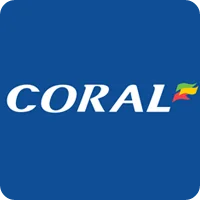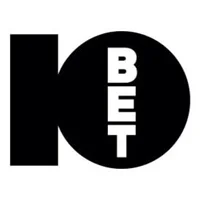Just weeks after my column on responsible gambling the subject is back in the news again thanks to William Hill’s record breaking fine of £19.2M by the UK Gambling Commission.
The fine, which covers various William Hill brands including William Hill itself and Mr Green Limited comes as a result of failings that were described by Gambling Commission Chief Executive Andrew Rhodes as being “widespread”.
I’d first like to address the issue of the gambling white paper, the document that one could be forgiven for thinking, given the number of delays to its publication, is a myth invented by various interested parties to scare politicians, anti-gambling campaigners and bookmakers alike.
William Hill
New Customer Offer

Bet £10 Get £30 in Free Bets
William Hill Sign Up Offer
Claim Offer
18+. Play Safe. From 00:01 on 18.10.2022. £30 bonus. New customers only. Minimum £10 stake on odds of 1/2 (1.5) or greater on sportsbook (excluding Virtual markets). Further terms apply. #ad
Gambling White Paper
There is still no sign of the white paper with sources stating that more than 90 written responses were received with regards the Department For Digital, Culture, Media & Sport inquiry between December last year and February of this.
From an industry viewpoint submissions to the committee have been made by Bet365, Entain, Flutter and 888 among others with questions surrounding the commissions willingness and ability to enforce fines and guidelines surrounding avoiding being fined likely to have been among those.
The William Hill Fines
Some of the fines appear to relate to the deposit and subsequent loss of a substantial amount of money on a new account in a relatively short period of time.
One example listed suggests a new customer lost £23,000 in 20 minutes without any checks while another states that new customers lost £18,000 and £32,500 in 24 hours and 48 hours respectively without those checks.
Other fines include those for anti-money laundering reasons including the failure to implement checks on a customer who deposited and lost over £70,000 in a month and another who lost £38,000 in five weeks among others.
There were also a number of fines that relate to a failure to restrict customers who were self excluded from Mr Green from opening up an account and playing on the William Hill website.
The lack of a request for SOF (source of funds) for a customer staking over £15,000 feels like a very basic error from the company while SOF is clearly an issue at the firm given another customer staked over £250,000, losing nearly £25,000 in two months without any checks with regards SOF.
The destination of the fines is an interesting topic also with the £19.2 million amounting to a “regulatory settlement” with the money directed towards “socially responsible purposes” rather than be used as a method to allow problem gamblers and other customers to recoup losses from bets that the Gambling Commission believe shouldn’t have been taken.
Future Practices
While it’s unlikely to prove too popular with many punters and some sportsbook employees I’d suggest that a cooling off period may be worth looking into with regards to the opening of accounts.
This cooling off period could take place as a 24-72hr period during which time the company involved could perform whatever source of funds, anti-money laundering and anti-problem gambling checks that they feel they need to.
Increasingly there seems to be little guidance with regards to this and while officially you only need to perform checks once punters reach a certain level it seems increasingly common that customers are hitting that level and are going well over it before/if any checks are made.
While the prospect of a delay to betting once an account is opened may seem frustrating to some it would arguably stop the impulsive problem gamblers from opening up straight away and losing substantial sums of money in a short period of time.
Given the current culture of imposing heavy fines for breaches of the regulations, shrewd operators may well look at employing a blanket approach to checks on money laundering and problem gambling so as not to risk the heavy fines.
The costs are likely to increase vastly but it seems clear that the Gambling Commission are going to continue to issue fines rather than suspend licences and potentially risk the future of businesses that employ thousands of people.
While comparisons with other “vices” such as smoking and alcohol may seem unhelpful it’s worth noting that there are zero affordability controls and the like on those.
The lack of a potential monetary return from drinking alcohol or smoking cigarettes arguably takes issues such as money laundering out of a visit to the pub but the two are equally if not more addictive than gambling yet there are no affordability checks when visiting the pub or off-licence at a time when we have a cost of living crisis and spiralling costs for bills, food, drinks (including alcohol) etc.
Social Responsibility
Bookmakers are in many ways placed in a tricky position with one of their key sports, horse racing seemingly wanting fewer checks on things such as affordability while also wanting bookmakers to take more money and promote the sport of racing so they can thus pay out more in levy and media fees.
Ultimately in an ever changing world we’re seeing attitudes to key issues in racing changing – most notably to gambling and the use of animals in sport.
Social responsibility is now a key aspect of all businesses, particularly those regulated heavily by the government such as those in gambling.
I’ve already touched on issues involving society and the Sport Of Kings in the past with a look at the whip rules and affordability checks in recent months.
Both are issues that are likely to be revisited before the years are out and it’s crucial for the sport of racing and the gambling industry in general to be adaptable and flexible.
Heavy fines seemingly do nobody any good, they cost the business money, money that could potentially be spent on sponsorship or extra payments to the industry.
The sport of racing doesn’t benefit as the Gambling Commission seemingly allocates the money to sources it sees fit and those who have suffered due to the failure to enforce the regulations and checks don’t see their money returned to them etc.

































